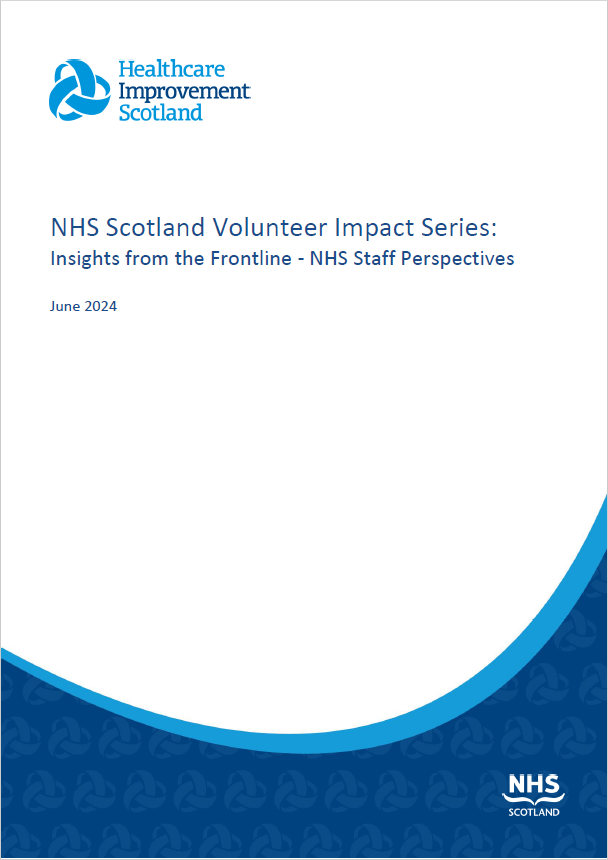NHS Staff Perspectives on Volunteer Impact
In early 2024, volunteer managers from NHS Ayrshire & Arran, NHS Greater Glasgow & Clyde, NHS Lanarkshire, NHS Lothian and NHS Tayside worked together to create a set of national questions. The aim was to gather data on the experiences of NHS staff who work alongside volunteers in their wards and departments. This work was supported by the NHS Scotland Volunteering Programme Team.
The purpose of the survey was to take a consistent approach to gathering data on the perspectives of staff who work alongside volunteers. This supports our shared ambition to be able to better evidence the difference that volunteers make. This report forms part of the NHS Scotland Volunteer Impact Series which highlights the difference that NHS Scotland volunteers make across the health system.
The survey generated 251 responses in total, reflecting the views of staff across 46 NHS Scotland locations in five NHS boards.
Findings
The findings from the pilot survey have given very useful insights into the positive impact that involving volunteers has on NHS staff. Based on the perspectives of NHS staff who participated in the survey, we can conclude that volunteers contribute to a range of benefits for both staff and patients.
The most significant finding from the report was that 99% of staff who responded to the survey said that involving volunteers is worth the investment of their time. Of that, 84% also that they spent less than 30 minutes per day providing support to volunteers. This would then suggest that volunteers provide a high level of benefit, for minimal investment of time.
Similarly, 69% of staff reported that involving volunteers reduces their levels of stress, alongside 26% who told us that volunteers help to support their mental health and wellbeing at work. Staff also reported better quality patient care, improved patient wellbeing and improved communication between staff and patients as outlined below:
- 65% agreed that volunteers help staff deliver better quality of care.
- 56% agreed that volunteers free them up to do other tasks.
- 45% reported that volunteers improved responsiveness to patient and visitor needs.
- 35% said that volunteers improve communication between staff and patients.
- 29% told us volunteers support their professional development and / or gave them supervisory experience.
- 23% told us that volunteers contribute to reduced number of complaints from patients.
Conclusions
The findings support volunteers as valuable partners in delivering quality care and outcomes for patients and visitors in healthcare and that the time required to support volunteers is minimal in comparison to their impact.
Recommendations
- Share the findings of this report with the NHS Scotland Volunteering Advisory Board, Executive and Strategic Leads for Volunteering in all NHS boards and members of the Volunteering Practitioners network.
- NHS boards who participated in the pilot survey should share the findings with their volunteers.
- Use the findings of this report, combined with the findings from the 2024 NHS Scotland Volunteer Experience Survey to communicate the impact of NHS Scotland Volunteering more widely across NHS Scotland, Scottish Government, Health & Social Care and Third Sector.
- Gather feedback on the report and identify improvements which could be made to the survey structure and questions.
- The NHS Scotland Volunteering Programme should embed this survey as part of their Volunteering Impact Series on an annual basis, working to encourage as many NHS boards to participate and share their local data with the programme team for analysis and reporting.

